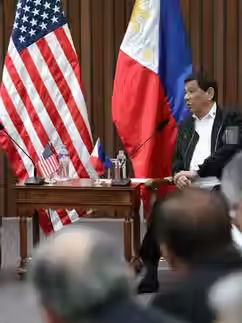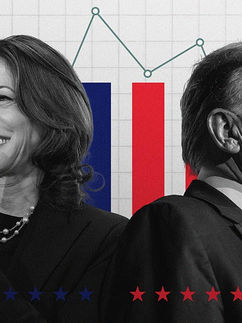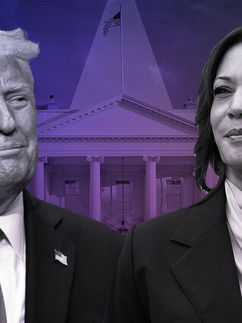China’s Confucian Revival – What Does it Mean?
- Louis Devine
- Dec 6, 2020
- 4 min read
Updated: Jan 27, 2022

Louis Devine
Confucius said, “beware the Communists pretending to be Confucian.” Okay, he didn’t really say that. But Confucius did say, “He who rules his state on a moral basis will be supported by the people.” Reviled during the Cultural Revolution, since the 1980s Confucianism has since enjoyed a party-endorsed renaissance in mainland China. What explains the sudden about-face? Confucius’ saying above offers a clue; by grounding itself in Confucian thought, the Chinese Communist Party (CCP) might have found an enduring source of moral and political legitimacy. This alone might not fully explain Confucian revivalism, but it’s a useful place to start.
Chinese society today rests upon an implicit social contract - individuals forego civil and political rights in exchange for economic growth and rising living standards. To date, this has been remarkably successful. More than 850 million Chinese have been lifted out of absolute poverty since Deng Xiaoping initiated economic reform in 1978. As such, Chinese people are the most optimistic in the world, with 41 per cent of respondents saying they believe the world is getting better. Francis Fukuyama describes the social contract of authoritarian societies as a transfer of meaning upwards from the individual to the collective, “What [is] lost in the realm of individual liberty [is] to be regained at the level of national purpose.” While the American Dream is about achieving individual desires, the Chinese Dream is about the nation regaining its collective purpose.
Yet, cracks are beginning to appear in China’s economic trajectory. Historic growth rates of ten per cent per annum cannot be sustained indefinitely and, in the end, not all boats will be lifted by the rising tide of the Chinese economy. China’s income inequality is now worse than that of the United States and a wealth gap between urban and rural China stubbornly persists, resisting policy efforts to bridge the divide. Most concerningly for the Chinese leadership is a widespread popular view that China’s elites are corrupt and do not play by the rules.
In the face of these challenges, how will the Party seek legitimacy and retain its hold on power? Until now, China’s social contract has been about material gains, but ideas can also deliver legitimacy. What we are witnessing now is China’s return to ideology. This time, however, the ideology is traditionally Chinese. Enter Confucius.
Where Chairman Mao once encouraged Party members to “criticise Confucius”, President Xi Jinping delivers speeches honouring Confucius’ 2565th birthday. China’s signature soft-power institutions are the Confucius Institutes. The Beijing Olympics opening ceremony featured thousands of people dressed as Confucian disciples. In 2014, the Party ordered its officials nationwide to attend lectures on Confucius. According to the People’s Daily (an official CCP newspaper), Confucianism is Xi Jinping’s most-quoted philosophy. A statue of Confucius was even briefly erected in Tiananmen Square, although it was later moved. But perhaps the most auspicious moment for Confucianism’s revival was the launch of former President Hu Jintao’s goal for China to become a “Harmonious Society”.
Harmony is central to Confucianism. From a Western perspective, it is easy to interpret ‘harmony’ as a fig leaf for social control and uniformity when endorsed by an authoritarian regime. Not so fast. Confucius, like early Western philosophers, divided reality into human and heavenly realms. Within the heavenly (or natural) realm – despite immense complexity and diversity – there exists a sort of rhythmic harmony and interconnectedness between all things. Consider, for example, how Earth’s ecological systems maintain a precarious balance between climate, migration patterns, animal food chains, and (to some degree) human activity. Confucianism aims to cultivate individuals who will act in harmony with the natural world. Difficulty arises, however, when this vision is transposed onto politics.
To act harmoniously within a society, individuals must first know their proper place within a family, community, and nation-state. Children respect parents, wives respect husbands, and citizens respect leaders. Authority (provided it is legitimate) ought to be upheld and respected. But in the absence of democratic elections, what makes political authority in contemporary China legitimate? For Confucians, authorities must be morally virtuous.
Asked how leaders should maintain power and cultivate social harmony, Confucius said, “When the wind blows, the grass bends.” By acting virtuously, leaders (the wind) can influence the people (the grass) to follow their example. As mentioned previously, a major threat to the CCP’s hold on power today is a widespread sentiment that its officials are corrupt. In response, President Xi Jinping launched a massive anti-corruption campaign upon taking office. Cynically, this could be seen merely as a guise for Xi to purge his political opponents, but in fact the motivation runs much deeper. A Confucian interpretation of Xi’s anti-corruption campaign would suggest that by creating the image of a Party with morally virtuous leaders, the CCP can legitimate itself by drawing upon generations-old Confucian ideas about political authority.
In short, by importing Confucianism into its governing ideology, the Communist Party becomes not just the founder of modern China, but the standard-bearer for a 5,000-year-old civilisation that once again stands proud on the global stage. Whether or not this move will be successful remains an open question, but the intention is clear. Liberals watch out: Confucianism is back.
Louis Devine is currently studying a Master of International Relations at the University of Melbourne. He also has a Bachelor of Arts (Honours) in Philosophy. You can find him on instagram posting about philosophy and geopolitics @ideas_matter

















Comentários